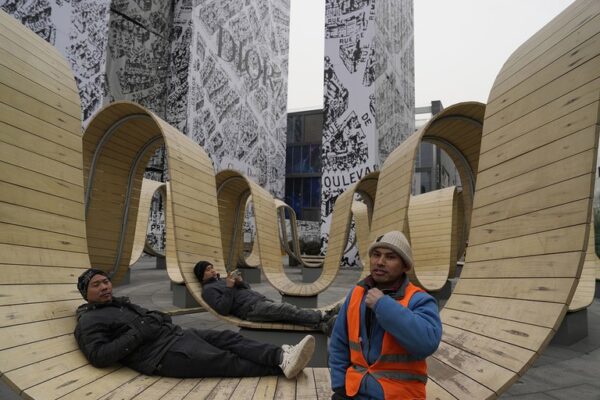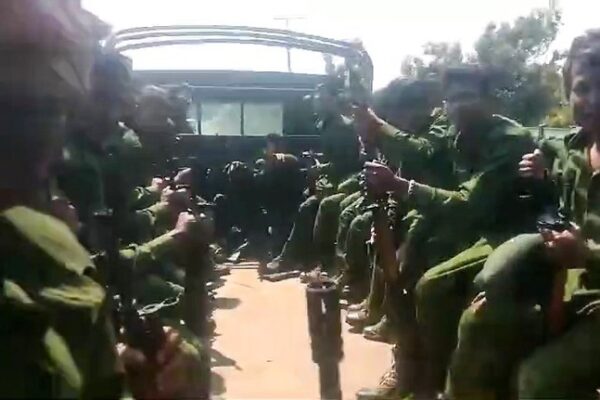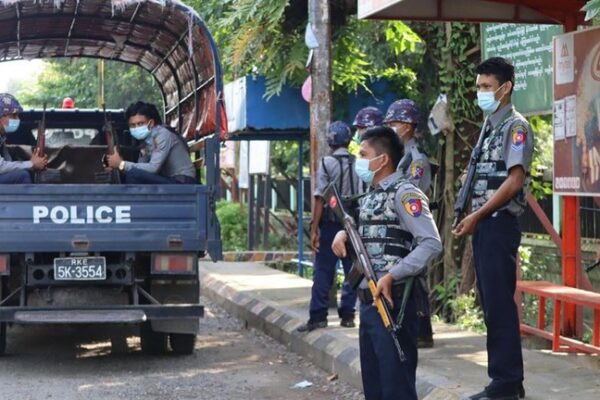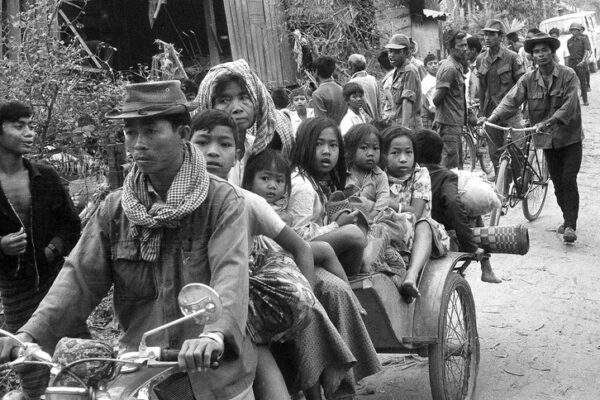Shares of Chinese soft drink maker Nongfu Spring have dropped after some consumers said they were boycotting their products due to a perceived lack of patriotism, and posted videos of themselves on social media dumping out their contents. Hong Kong-listed shares in Hangzhou-based Nongfu Spring slid 7.7% from HK$44.60 on Feb. 29 to HK$41.20 on March 5, as online nationalists launched a boycott at the start of the annual National People’s Congress, which ended Monday. Users shared photos of labels on some of the company’s spring water bottles, complaining that it depicted a Japanese temple. Others likened a Greek letter on the company’s bottled jasmine tea to the shape of Tokyo’s Yasukuni Shrine, where the Japanese war dead are remembered. Others targeted the company’s founder and China’s richest man Zhong Shanshan, calling him a profiteer, and pointing out that his son Zhong Shuzi is an American citizen, citing the company’s 2020 prospectus. Still others said the red bottle cap used on Nongfu Spring water bottles recalled the red sun emblem in the Japanese national flag. Zhong Shanshan, chairman of Nongfu Spring, gestures during a speech at a press conference in Beijing, May 6, 2013. (CNS via/ AFP) Nongfu Spring responded on March 8, saying that the labels on its Oriental Leaf Green Tea bottles are based on a Chinese temple, and pointing to text on the label which mentions that the Japanese art of tea-drinking originated in China. “The content is not only authentic but also meticulously sourced, with the intention of highlighting the profound impact of Chinese tea and tea culture on a global scale, thereby showcasing a strong sense of national pride and confidence,” the company said in comments reported in the nationalistic Global Times newspaper. Targets of wrath The statement appears to have done little to mollify the “little pinks,” a nickname for zealously patriotic supporters of the ruling Chinese Communist Party. On Sunday, two branches of 7-Eleven in the eastern province of Jiangsu said they had pulled all Nongfu Spring products from the shelves, saying that they won’t sell products that “adulate Japan,” the paper reported. Nongfu Spring hasn’t been the only target of nationalists’ ire in recent days, either. They have also gone after Nobel literature laureate Mo Yan for hurting their feelings by “insulting the People’s Liberation Army, late Chairman Mao Zedong, and the Chinese people.” Mo’s work “Red Sorghum,” which was made into a 1987 film starring Gong Li, “vilified the Eighth Route Army” and “insulted revolutionary martyrs,” according to some comments, while others demanded compensation for hurt feelings and “reputational damage.” Chinese Literature Nobel Prize winner Mo Yan, center, leaves following a panel discussion at the Beijing International Book Fair in Beijing, Aug. 23, 2017. (Mark Schiefelbein/AP) Netizens also took aim at Beijing’s Tsinghua University for being the only top university that hasn’t been targeted for U.S. sanctions. China has laws banning insults to revolutionary heroes and martyrs, as well as to the national anthem, its soldiers and police force. You’re hurting my feelings Its lawmakers are also considering a law criminalizing “hurting the feelings of the Chinese people,” a stock phrase frequently used by Chinese officials and state media to criticize speech or actions by outsiders that Beijing disapproves of. Under a proposed amendment to the Public Security Administration Law, wearing the wrong T-shirt or complaining about China online could lead to a fine of up to 5,000 yuan (US$680) or 15 days in jail. The law doesn’t specify what kind of acts might do such a thing, but does warn that “denying the deeds” of revolutionary heroes and martyrs or defacing their public memorials would count. “Sometimes it’s directly organized by the government, and sometimes it’s not — it’s just people jumping on the bandwagon,” political commentator Ji Feng said. He said the hate campaign against Mo Yan recalled the public denunciations of the 1966-76 Cultural Revolution, and the Anti-Rightist Movement of the 1950s. If such denunciations continue, Ji warned that they will eventually target people who say nothing at all, and eventually move on to include those who don’t sing the praises of the Communist Party or its leaders loudly enough, “layer by layer.” Hard-wired U.S.-based political commentator Hu Ping said both Mo Yan and Nongfu Spring were once considered to be firmly inside the Chinese political establishment, and they are now next in line because public figures who supported democracy have long since been dealt with. “[Their targets] are getting more and more left-wing, because there’s nobody left on the other side of the political spectrum,” Hu said. “So they just find the most liberal-minded person and attack them, which we all think is pretty ridiculous.” Members of security look on after the opening session of the National People’s Congress at the Great Hall of the People in Beijing on March 5, 2024. (Pedro Pardo/AFP) Independent political scholar Chen Daoyin said patriotism has become hard-wired into China’s legislation, administrative regulations and throughout law enforcement under the leadership of Xi Jinping. “Anyone deploying this kind of patriotic [attack] is protected by these structures, so internet censors wouldn’t dare to stop them, or they might get burned themselves,” Chen said. He said nationalistic witch hunts drive huge amounts of traffic on Chinese social media platforms, suggesting that the latest wave of “little pink” activity wasn’t driven by any government order. “It was a spontaneous thing, and purely driven by economic motives.” Mo, who won the Nobel Prize for Literature in 2012, has yet to respond publicly to the criticisms of his work. British-Chinese writer Ma Jian said totalitarian regimes lend themselves to such dramas in the absence of freely available information. “When a totalitarian country has eliminated true patriots, and anyone with a sense of morality or justice … then when the mob starts to bite there is nowhere they won’t go once they take the opportunity,” Ma said. “We will continue to see stories like this, and the most extreme kind of absurdities — it won’t just be…






